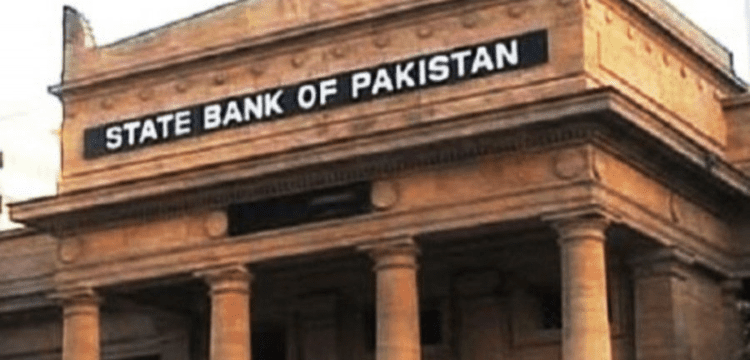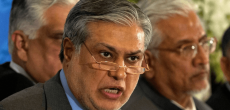[vc_row][vc_column][vc_column_text dp_text_size=”size-4″]ISLAMABAD: After again failing to fill a vacancy for central bank director within a month, the government has decided to name a new deputy governor of the central bank to replace Dr. Murtaza Syed.
On January 26, Murtaza Syed’s three-year term comes to an end. Syed was formerly a favourite for the position of governor of the State Bank of Pakistan (SBP). But due to his upcoming leave, this will be his final week working for the central bank.
Former SBP governor Dr Reza Baqir had brought him from the International Monetary Fund (IMF) to serve at the central bank. He worked with the IMF for 16 years before joining the SBP three years ago.
He also served as the acting SBP governor for about three months due to delay in reaching a political consensus on the appointment of the new governor. “I am not going back to the IMF,” Murtaza told.
At the time of appointment of the governor and deputy governor over three years ago, there had been criticism of bringing people from abroad. However, Murtaza proved his mettle during his three-year stay at the SBP. After he could not muster enough support for extension in services, Baqir has now joined the Mossavar-Rahmani Centre for Business and Government, Harvard Kennedy School.
In August, Murtaza was one of the top three candidates being considered for thr post of SBP governor. However, the government preferred Jameel Ahmad as some in the Pakistan Muslim League-Nawaz objected to the political background of one of Murtaza’s relatives.
The government has not yet received a panel for the post of deputy governor, although the names of Dr Saeed Ahmed and Ashraf Khan – both of them were also being considered for the post of governor six months ago – were being circulated. Ahmed’s three-year tenure as a senior advisor to the IMF executive director ended last week.
The amended SBP Act states that the deputy governors shall be appointed by the federal government after consultation between the minister of finance that the governor, from amongst a panel of three candidates recommended by the governor for each vacant position, in order of merit
“In the event of a vacany occuring amongst the appointed governor, deputy governors, non-executive directors and the external members of the Monetary Policy Committee, an appointment referred shall be finalised within a period not exceeding thirty days on the occurrence of such vacancy,” read sub-section 4 of Section 11.
However, the SBP Act, which had been changed in response to demands from the IMF and the previous SBP management, has been broken by the federal government three times in the last eight months.
Tariq Pasha was first selected by the government as the director of the SBP in July of this year, but on October 27 he was named a special assistant to the prime minister for revenue. The administration was required by law to fill the position by November 26. But it has been breaking the law for two months.
When President Arif Alvi approved the appointment of Muhammad Ali Latif as the non-executive director of the SBP, the government only recently filled the position.
Another SBP director, Nadeem Hussain, resigned from the board on December 10 as a result of a conflict of interest arising from his ownership of a company that was vying for a licence to offer digital banking services and his seat on the board.
Hussain owns stock in Planet N Private Limited, which requested a State Bank licence for digital banking. A consortium, consisting of Planet N and Pak-Kuwait Investment Company, applied for the licence. This post is still open.
According to a representative of the finance ministry, the second director has not yet been appointed.On the website of the central bank, Tariq Pasha and Nadeem Hussain are still listed as the directors.
In the end, a lack of regard for the law results in weakened state institutions and poor governance. Because of the federal government’s continued callousness, organisations like the IMF and the World Bank are able to impose their will on Pakistan.
Additionally, the central bank does not follow the rotation policy. Some executive directors are working longer than the required three-year term. The central bank restructure that the new SBP governor plans to implement to manage the bank more effectively has not yet been implemented.
[/vc_column_text][/vc_column][/vc_row]











